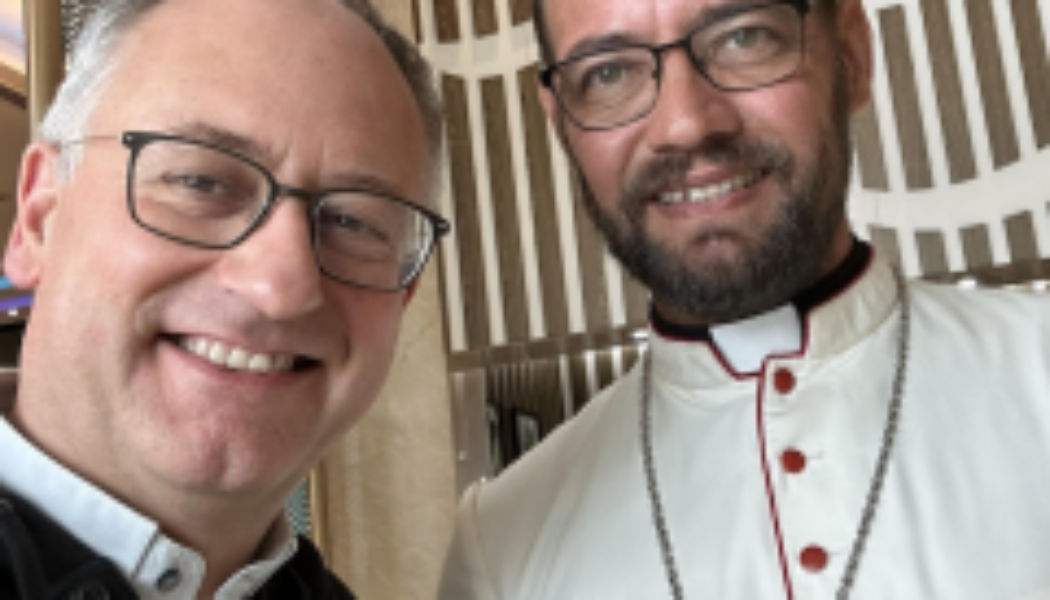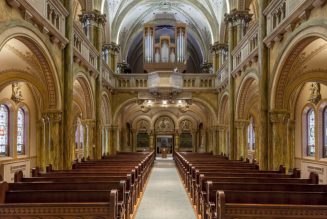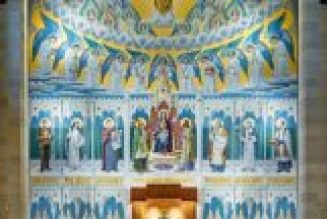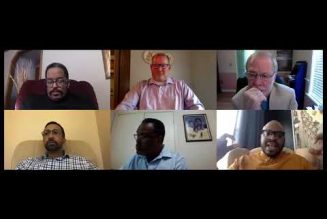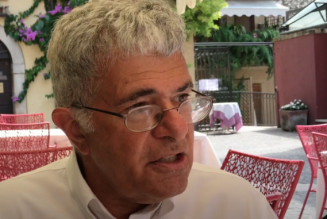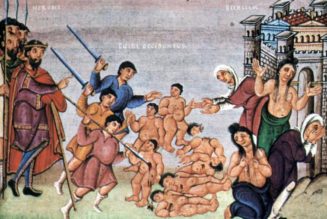
> Italiano
> English
> Español
> Français
> All the articles of Settimo Cielo in English
*
There is only one continent on which Catholicism is not retreating, but expanding: Africa. Five of the ten countries with the highest Mass attendance rates are African. The only seminaries filling up instead of emptying are African.
And also from Africa comes the resistance against the current that is driving so many Catholic Churches in the North toward the shores of blessing homosexual couples. In the Anglican Church on this same question it has already come to schism, and there too the numbers are all in the South’s favor.
In short, it is not wrong to see in Africa the future axis of Christianity worldwide. The synod to be held in Rome in October, convened by Pope Francis, will be a proving ground for this pivot.
But there is also something else in African Catholicism. And it is anything but radiant. It is the opposition, which often becomes armed warfare, among the tribes.
Francis got firsthand experience of this when he went to Congo and South Sudan last February. And he has repeatedly felt its destructive repercussions when his episcopal appointments in Africa have been rejected by enemy tribes, with disputes that have lasted for years and have not always been resolved, with bloody aftermath. Settimo Cielo published a striking synopsis of these last March 6.
During the press conference on the plane back from Juba, Francis did not hesitate to call tribalism “diabolical,” while admitting that he doesn’t “quite know how it is.” But if he has read the latest copy of “La Civiltà Cattolica” – which, as always, he was given to thumb through in advance – these doubts of his should have disappeared.
In its June 3-17 issue, “La Civiltà Cattolica” has published an extensive conversation (see photo) between its editor, Antonio Spadaro, and the bishop of Rumbek, Christian Carlassare, who precisely on account of tribal enmities fell victim, after his appointment in 2021, to an armed ambush by a priest and four laymen of the diocese.
With 12 million inhabitants, South Sudan is almost two-thirds Christian and escaped the domination of the Muslim North, with its capital Khartoum, after more than twenty years of war. But as soon as it reached independence in 2011, irreparable divisions sprang up among the 64 ethnic groups present in the country, each with its own language and traditions, and above all between the two major tribes, the Dinka and the Nuer.
But let’s hear from Bishop Carlassare:
– “A first element is violence, which emerges in a completely unexpected way and can reach incomprehensibly high levels without rousing indignation or condemnation. So there is a strong tendency toward group formation, seeking protection and security”;
– “The African proverb ‘I am because we are,’ as beautiful as it is, also highlights a weakness. The individual, in fact, can survive only within his own group – family, clan, tribe – which provides security and distributive justice. This belonging comes before any other, even before the wider community and the state. As a result, fidelity to the tradition and to the ethnic law of the tribe has priority over the civil law, indeed adopted by the nation but inspired by a philosophy of law that is completely foreign to the local mentality.”
– “It is the family that defends its own member, before the state. So there is absolute loyalty to a close relative, whether right or wrong, justified or misguided, innocent or guilty. Tribal membership almost completely obscures the individual’s identity and, since a person’s identity is rooted in his collectivity, the other is always perceived as representing his ethnic group.”
– “It is a matter of fact that the South Sudanese military elite is much too large. A country that has more generals than professors, it was said some time ago: a good 745 generals, a number that made South Sudan second only to Russia. In addition to this, the country has many more recruits than it actually needs in the regular army and in many other militias. Moreover, the army suffers from the fact that each battalion answers in everything and for everything only to its own commander.”
– “Various reports show that there are far more Kalashnikov rifles in circulation outside the army than inside it. Internal conflict has fostered a great proliferation of weapons in civilian hands as well.”
– “Despite the peace agreement, a third of the population of South Sudan is still in neighboring countries as refugees or displaced within the country itself. The national unity government has repeatedly invited people to come back home. But what does it mean to come home after almost ten years? Will there ever be a place that can be called ‘home’? Often the places of origin are now occupied by other groups, civilian or military. In others, those territories have become overgrown, and the villages would have to be rebuilt from scratch. In the case of the Nuer, their territories are submerged by water due to the extraordinary rise of the Nile. Going home is scary. There is insecurity, uncertainty, and poverty. There is in fact no work and no incentive to rebuild. So for many it is better to remain displaced and refugees.”
– “The data say that only 20 percent of school-age children have access to a primary school; 2.8 million have no chance of going to school. In addition to the lack of infrastructure, the biggest challenge remains the pay of teachers and instructors. Salaries are too low. Those who could be good teachers go off to work for humanitarian organizations, while those who are left to teach are unqualified young people who only want to help for a certain time, hoping to find something better later. In addition to this, in rural areas it is not easy to overcome culture and traditions that consider education as not so necessary and, in the case of girls, even dangerous, to the extent that it promotes an emancipation that makes women less submissive to male-dominated society.”
– “Educated people, if they do not enter the state jobs sector, often not well paid, aim to find work with humanitarian agencies or to found their own non-governmental organizations, drawing from funds from the international community. But the country’s economic recovery cannot be based on this.”
– “The agreement between the parties is only a necessary first step to enter upon the road to peace. But the journey is long, and corruption and injustices make this path very strenuous. The Church is called to walk with the people carrying those burdens, and this will create communion. At the same time it evangelizes, recognizing and bringing out that luminous humanity present in each person which is the only true source of hope.”
It is with this gleam of light that Bishop Carlassare’s conversation in “La Civiltà Cattolica” concludes, with his very realistic portrayal of that tribalism which is poisoning not only South Sudan but much of Africa, and of Catholic Africa.
In April 2019, when Francis summoned for a spiritual retreat at the Vatican the two rival leaders, Catholics, of South Sudan, he gave them both a Bible, on which – Carlassare recalled – “there had been affixed a phrase borrowed from Pope John XXIII: ‘Seek what unites and overcome what divides’.”
Then the pope bent down to kiss their feet, with a gesture “whose implied message was: ‘Now you also do the same’.”
Four years later this hope remains alive, but it is still far from becoming reality, to judge from the remarks of such an authoritative witness on the ground as the bishop of Rumbek.
Because if in Europe and the Americas the Church is collapsing in numbers and vitality, neither in Africa does it appear to be in good health.
.
